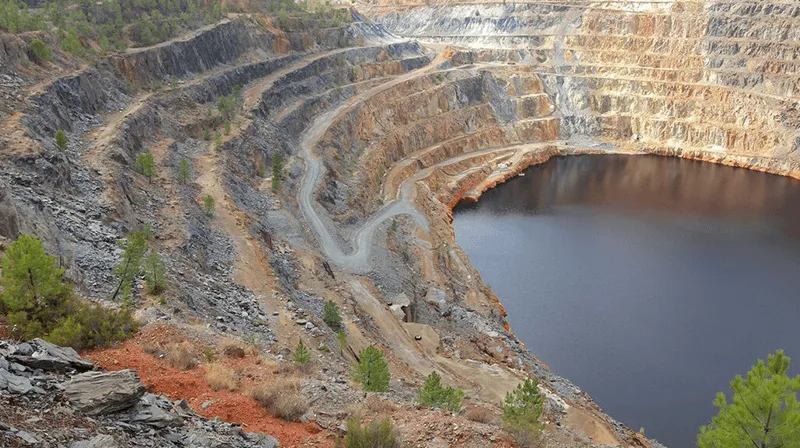Mining is a cornerstone of the global economy, providing essential materials for various industries and contributing significantly to economic growth. However, traditional mining practices often come with significant environmental and social costs. IHTMOC Consulting, recognises the pressing need for a paradigm shift towards more sustainable and intelligent mining solutions. In this blog post, we will explore the myriad benefits of sustainable and intelligent mining practices, demonstrating how they can elevate mining companies into entities with enhanced economic, social, and environmental performance.
1. Economic Benefits
a. Increased Efficiency and Reduced Costs
One of the primary advantages of intelligent mining solutions is the significant improvement in operational efficiency. Through the integration of advanced technologies such as automation, artificial intelligence (AI), and the Internet of Things (IoT), mining operations can be optimized to reduce downtime, enhance precision, and streamline processes. For instance, autonomous vehicles and drones can handle repetitive and dangerous tasks, reducing the risk of accidents and increasing productivity.
AI-driven predictive maintenance systems can foresee equipment failures before they occur, allowing for timely repairs and preventing costly unplanned downtime. These technologies not only improve the lifespan of machinery but also cut down on maintenance costs, ultimately enhancing the bottom line.
b. Better Resource Management
Sustainable mining practices emphasize efficient resource management, ensuring that mineral extraction is maximized while minimizing waste. Advanced geological modelling and data analytics can pinpoint the most profitable areas to mine, reducing unnecessary excavation and preserving the integrity of surrounding ecosystems. This precision mining approach ensures that resources are utilized more effectively, leading to increased profitability and reduced environmental impact.
c. Long-term Viability and Investor Confidence
Companies that adopt sustainable and intelligent mining practices are better positioned to maintain long-term viability. These practices demonstrate a commitment to responsible resource management, which can attract socially responsible investors and enhance the company’s reputation. In an era where Environmental, Social, and Governance (ESG) criteria are increasingly influencing investment decisions, mining companies that prioritize sustainability are more likely to secure funding and partnerships.
2. Environmental Benefits
a. Reduced Carbon Footprint
The mining industry is a significant contributor to greenhouse gas emissions. However, sustainable mining solutions aim to reduce the carbon footprint of operations. By leveraging renewable energy sources such as solar, wind, and hydroelectric power, mining companies can significantly cut their reliance on fossil fuels. Additionally, energy-efficient technologies and processes can further reduce emissions, contributing to global efforts to combat climate change.
b. Minimized Environmental Degradation
Traditional mining methods often result in substantial environmental degradation, including deforestation, soil erosion, and water pollution. Sustainable mining practices, however, prioritize the preservation of natural ecosystems. Techniques such as land reclamation, phytoremediation (using plants to clean contaminated soils), and responsible waste management ensure that mining activities have minimal long-term impacts on the environment.
Furthermore, intelligent monitoring systems can continuously track environmental parameters, allowing for real-time adjustments to minimize harm. This proactive approach ensures that any potential environmental damage is swiftly addressed, maintaining the health of local ecosystems.
3. Social Benefits
a. Improved Worker Safety and Health
The mining industry is notorious for its hazardous working conditions. However, intelligent mining solutions can significantly enhance worker safety. Automation and remote-controlled machinery reduce the need for human presence in dangerous areas, thereby minimizing the risk of accidents. Wearable technologies can monitor workers’ health in real-time, providing alerts for potential issues such as heat stress or exposure to toxic substances.
Furthermore, intelligent systems can facilitate better emergency response plans. In the event of an accident, automated protocols can quickly coordinate evacuation and medical assistance, potentially saving lives and reducing injury severity.
b. Community Engagement and Development
Sustainable mining practices extend beyond environmental concerns to include social responsibility. Mining companies that adopt these practices are more likely to engage with local communities, ensuring that their operations contribute to local development. This can include building infrastructure, providing education and training programs, and creating employment opportunities.
By fostering positive relationships with communities, mining companies can mitigate social conflicts and ensure a more harmonious coexistence. This community-centric approach not only benefits the locals but also enhances the company’s social license to operate, which is crucial for long-term success.
c. Ethical Supply Chains
Consumers and businesses are increasingly demanding ethically sourced materials. Sustainable mining practices ensure that the supply chains are free from human rights abuses, such as child labor and exploitation. By adhering to high ethical standards, mining companies can appeal to conscientious consumers and businesses, opening up new market opportunities and building brand loyalty.
4. Technological Benefits
a. Innovation and Continuous Improvement
The adoption of intelligent mining solutions fosters a culture of innovation within the industry. Continuous improvement is encouraged as companies strive to stay ahead of technological advancements. This innovative mindset not only improves operational efficiency but also drives the development of new technologies that can further enhance sustainability.
b. Data-Driven Decision Making
Intelligent mining solutions rely heavily on data analytics and real-time monitoring. This data-driven approach allows for more informed decision-making, enabling companies to optimize their operations continually. By leveraging big data, mining companies can identify trends, predict future challenges, and develop strategies to address them proactively.
c. Enhanced Collaboration and Transparency
Advanced communication technologies facilitate better collaboration between different stakeholders, including employees, management, regulators, and the community. Transparent operations build trust and ensure that all parties are informed and involved in decision-making processes. This collaborative approach can lead to more sustainable and mutually beneficial outcomes.
Conclusion
The shift towards sustainable and intelligent mining solutions is not just a trend but a necessity for the future of the industry. The benefits are manifold, ranging from increased economic efficiency and profitability to significant environmental and social advantages. IHTMOC Consulting is committed to driving this transformation by providing innovative solutions tailored for the mining sector. By embracing sustainable practices, mining companies can not only enhance their economic performance but also contribute to a more sustainable and equitable world.
In conclusion, sustainable and intelligent mining solutions represent the future of the industry, ensuring that mining operations are economically viable, environmentally responsible, and socially beneficial. It is time for the mining sector to adopt these practices and pave the way for a more sustainable future.





